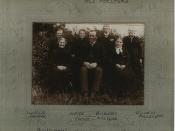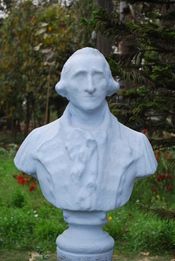The merits of the English officials, and their faults and lapses. Forster's irony and satire. In "A Passage To India", Forster gives us what is largely an impartial picture of the English officials and bureaucrats as they functioned in India at the time to which the novel pertains. Forster not only dwells upon the merits and virtues of the Anglo-Indians but also exposes without mercy their shortcomings and lapses. Indeed, Forster's portrayal of the Anglo-Indians or the English community in India is one of the highlights of the novel and one of its outstanding merits.
Anglo-India is caught here as it had never been caught before, and " its sharp divisions, its crushing institutionalism and officialdom, its racial and herd thought and emotion provide an excellent background for Forster's philosophy of personal relationships". At the same time, we are shown "the British officials in all his glory- devoted to his routine, inflexible in what he thinks is just, above corruption, toiling almost incessantly upon work for which he receives no thanks and no reorganization; separated from his wife, who must go to the hills or "home" and from his children who must be brought up far away in England; dislikes: "inventiveness, officialdom, stupidity, repressiveness, and rudeness".
He shows " their stiff aloofness, their pride, refusing intercourse with natives, the contempt for the educated Indians, outbursts of irrational anger, especially in the case of Anglo-Indian women". Forster uses all his gifts of irony and satire in his portrayal of the English officials and their wives.
Arrogant and haughty. At the very outset, we are told about the feeling of the Indians that it is not possible for them to be friends with Englishmen. According to Aziz, when an Englishman first comes to India he has every intention to behave like a...


